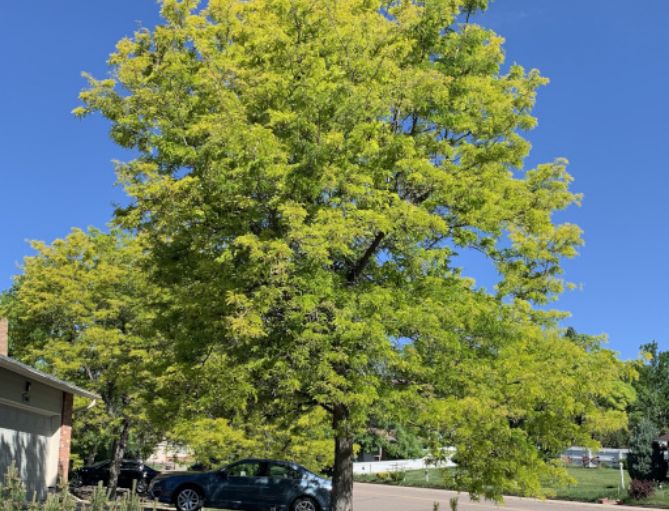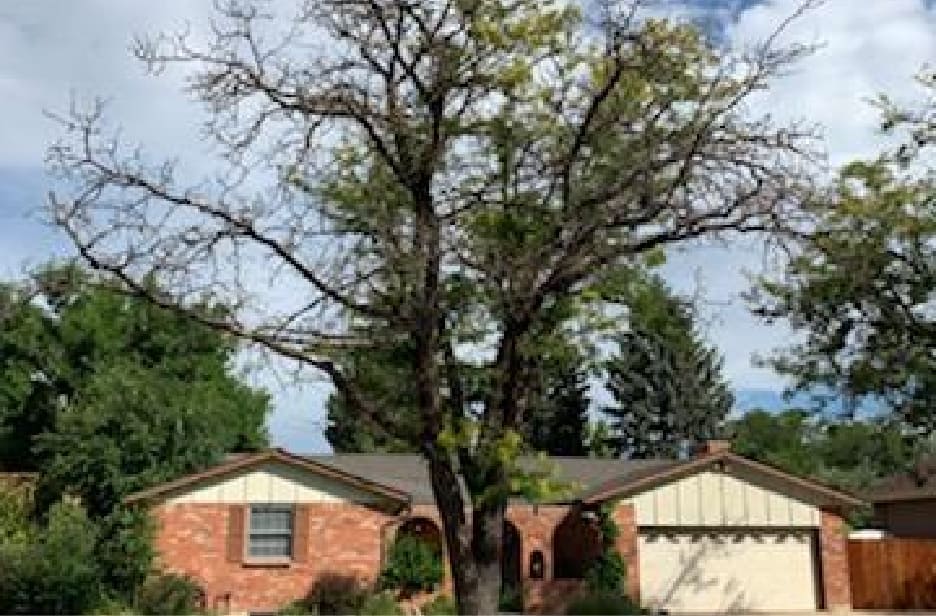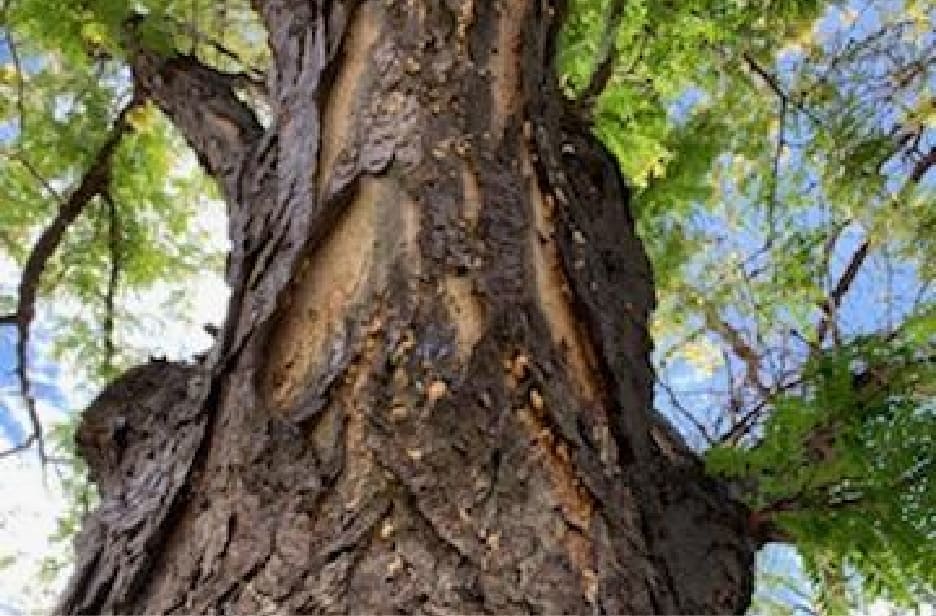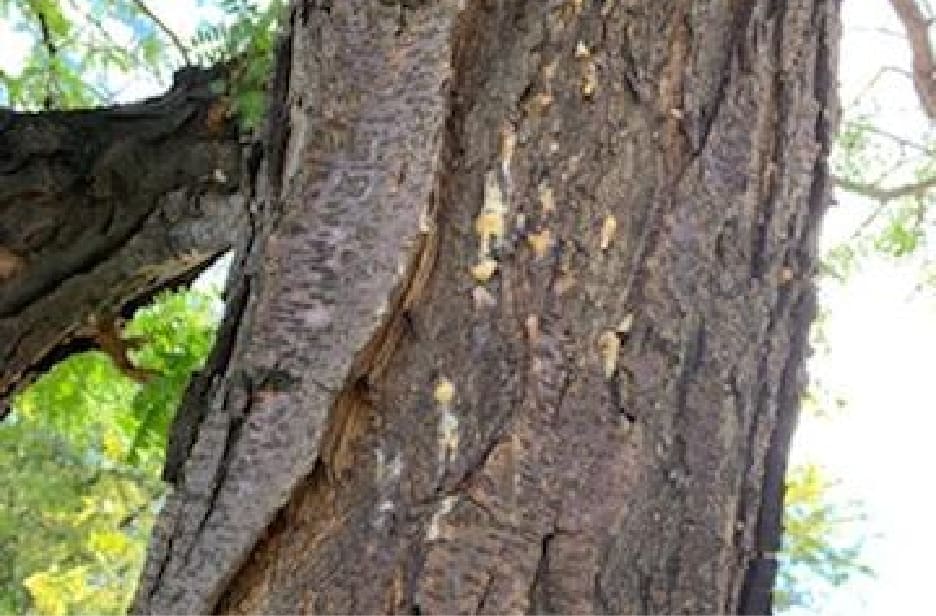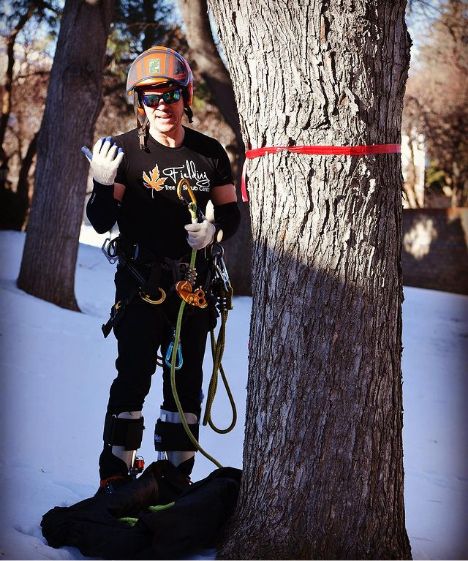Tree Services
Locust Tree Maintenance
Fielding Tree Care’s arborists are well versed in Locust tree diseases and care in the south Denver, CO area.
Locust Tree
Maintenance Tips
- Proper watering is an overlooked, but very important, tree care practice. Locust species prefer well-drained soil and can become compromised if their soil becomes too saturated with water.
- Locust trees adapt to different soil types, but even the ones commonly found in Denver, struggle in the high-alkaline soil.
- Annual pruning helps Locust trees keep their beautiful shape and color. Retaining abundant deadwood or damaged limbs may serve as attractants to boring insects and fungal pathogens.
- Honey Locusts are susceptible to borers, but proper maintenance can build resistance.
Most Common
Locust Tree Diseases and Pests
Honey Locust Borer – Root Collar Rot – Cankers – Honeylocust Pod Gall Midge
The Honey Locust tree, in particular, struggles with diseases that can cause injury and even death. Thyronectria Canker and Honey Locust Borers are the most common Locust tree diseases and pests in Denver.
Resources
Helpful Articles for Locust Tree Maintenance in Colorado
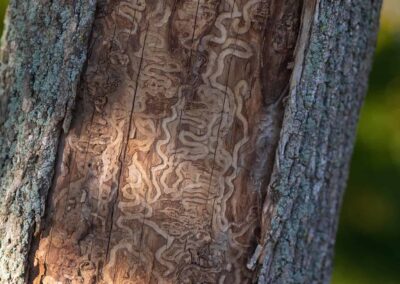
An Arborists Glossary of Pests and Diseases
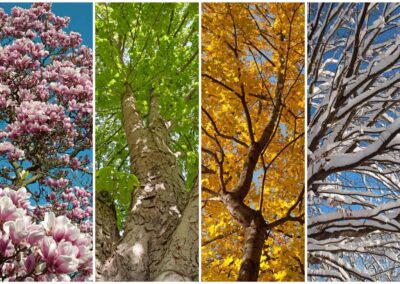
Colorado Tree Care Through all Four Seasons
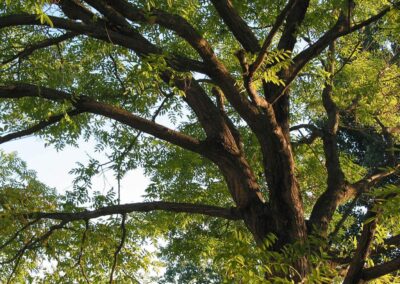
How to Grow a Healthy Locust Tree In Denver
Metro Denver Tree Service
Our Denver Tree Company Service Area Includes
South Denver, Littleton, Centennial, Highlands Ranch, Englewood, Lone Tree, Castle Rock, Parker, Greenwood Village, and all previous customers in the metro Denver area.
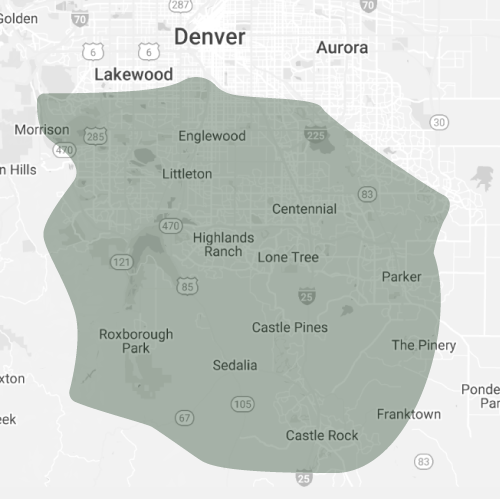
Other Common Types of Trees We Treat
With decades of experience caring for Colorado trees and shrubs, our team at Fielding Tree Care has put together a comprehensive list of the trees and shrubs we treat.
